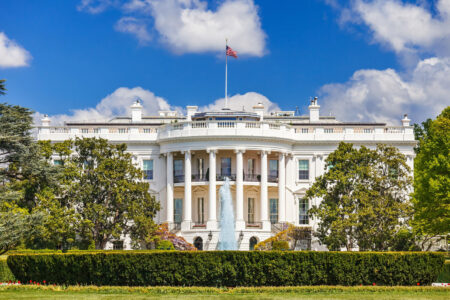Since former investment banker Gary Gensler took office, the US Securities and Exchange Commission (SEC) has been on a crusade against the crypto industry. The authority wants every cryptocurrency except Bitcoin under its supervision. Trading should no longer be open and accessible to everyone.
When the Biden administration appointed Gary Gensler as chairman of the SEC at the beginning of 2021, the crypto industry rejoiced. The former Goldman Sachs investment banker worked for years at the Commodity Futures Trading Commission (CFTC) and taught a blockchain course at MIT. However, this affinity for crypto did not affect the SEC's attitude. In the three years since Gensler took office, the agency launched 85 enforcement actions against crypto companies, according to the SEC website. By comparison, that was 25% more actions than in the previous ten years since the creation of Bitcoin. And none of the actions prevented the devastating collapses of Terra/Luna, BlockFi, Celsius or FTX. Instead, the SEC is suing legitimate companies like Coinbase, Kraken, Robinhood and Uniswap - without providing guidance to the crypto industry.
All cryptocurrencies except Bitcoin are securities
In the United States, several regulators share the financial area. While the SEC oversees securities trading, commodities trading is the responsibility of the Commodity Futures Trading Commission (CFTC). As digital assets are not legally classified by the political chambers, the two authorities have been battling over oversight of the sector for some time. For its part, using the Howey test introduced in 1933, the SEC argues that all cryptocurrencies other than Bitcoin must be classified as securities. This contrasts with the position of the CFTC, which regulates some digital assets as commodities.
To avoid having to wait for a legal policy, the SEC has for some months been pursuing a strategy that industry representatives refer to as "regulation by enforcement". Instead of defining clear guidelines, the agency is taking legal action against companies that it considers to be within its jurisdiction. This arbitrary categorization of cryptocurrencies as securities poses two challenges for the industry.
On the one hand, founding teams would have to register with the SEC as issuers of a security. However, the authority does not want to specify what kind of projects should be subject to these requirements. Nor is there even a process for registering a cryptocurrency as a security. The SEC's documents are only applicable to traditional companies. On the other hand, trading venues would also need to obtain a license to offer crypto securities. Since 2022, the largest players such as Robinhood and Coinbase have been seeking such a license. So far, the SEC has rejected all applications without explanation.
A hail of lawsuits against crypto companies
Although there is no legal framework for crypto players, the SEC is throwing lawsuits around. In recent weeks, an almost kamikaze-like advance by the authority has hit the decentralized exchange Uniswap, the wallet provider Metamask and the US financial services provider Robinhood. The extent to which the projects have violated securities laws remains unclear. The accusation is likely to revolve around the offering of crypto trading services. One problem: neither Uniswap Labs nor Metamask are financial service providers. The Uniswap Smart Contract is a trading protocol that operates a decentralized network of Ethereum nodes. And Metamask offers cryptocurrency storage software (wallet). Accordingly, Consensys, the US company behind Metamask, went on the counterattack with its own lawsuit against the SEC.
Robinhood, on the other hand, as a company listed in the US, is attempting to comply with any wishes of the SEC. For example, the company removed all cryptocurrencies from its trading app that could be considered securities according to the authority. The financial services provider also applied for a license to offer crypto securities trading. These efforts, which required countless millions in legal fees, were seemingly for naught. In a blog post, former SEC Commissioner and current Chief Legal Officer at Robinhood, Dan Gallagher, expressed his frustration.
"After years of honest attempts to work with the SEC for regulatory clarity, including our well-known effort to 'step in and register,' we are disappointed that the agency has chosen to issue a Wells Notice with respect to our U.S. crypto business. [...] Robinhood Crypto has made difficult decisions not to list certain tokens or offer products such as lending and staking that the SEC has previously labeled as securities in public lawsuits against other platforms. In addition, Robinhood has complied with the SEC's requests and [unsuccessfully]attempted to register with the agency as a special purpose broker-dealer." - Dan Gallagher, Chief Legal, Compliance and Corporate Affairs Officer at Robinhood
US Congress has to intervene
The task of the regulatory authorities is to implement the legal provisions laid down by the US Congress. As a subordinate agency, the invention of new guidelines is not within the remit of the SEC. Ultimately, therefore, Congress must step in if an agency is not operating properly. This is exactly what is beginning to happen in the United States. In hearings before both chambers, the SEC is repeatedly criticized.
The Chairwoman of the Committee on Capital Markets in the House of Representatives said this Tuesday that there is serious cause for concern if market participants lose confidence in their regulator. If SEC staff were to act as both prosecutor and judge in cases involving millions of dollars in penalties, public confidence would continue to wane. The Republican cited the highly unprofessional behavior of the authority in the case against the crypto project DEBT Box as an indication of this.
#WATCH: Chairman @RepAnnWagner at today's hearing on SEC enforcement:
"Our goal is to protect the due process rights of all market participants, increase accountability and transparency, and enhance public trust."
Read more 🔗https://t.co/aXsaRyHM8k
📺 Watch her remarks 👇 pic.twitter.com/vIsla47qwD
— Financial Services GOP (@FinancialCmte) May 7, 2024








